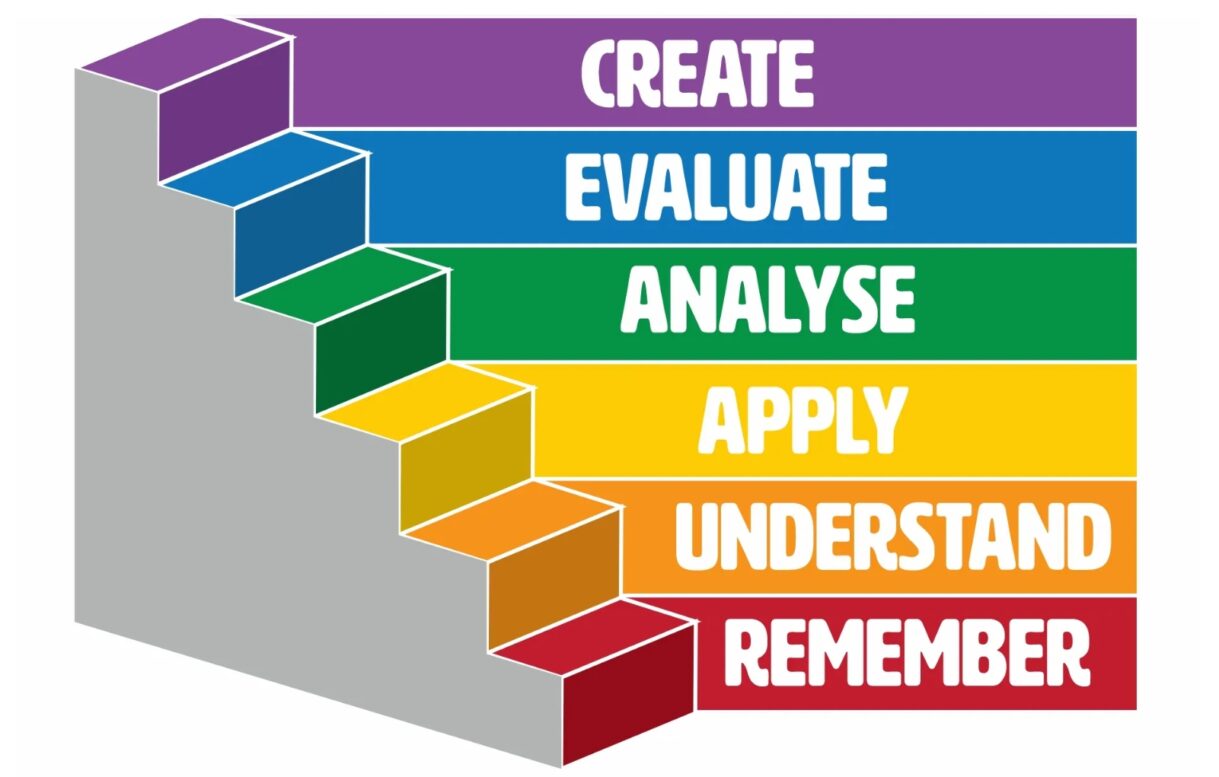
At Little Mountain Learning Academy, we aim to provide students with a deep and meaningful learning experience. Recently, we hosted a parent workshop which touched on Bloom’s Taxonomy, a framework that helps educators and students develop higher-order thinking skills. Many parents found it useful, so we wanted to share an overview to help you understand how this approach enhances learning and how you can further support your child at home.
What is Bloom’s Taxonomy?
Bloom’s Taxonomy categorizes different levels of thinking to help educators create lessons that progressively develop students’ cognitive skills. Originally developed by educational psychologist Benjamin Bloom in 1956, it consists of six levels, ranging from basic knowledge recall to complex critical thinking.
The six levels, from simplest to most complex, are:
- Remembering – Recalling facts and basic concepts (e.g., “What are the main events in the story?”)
- Understanding – Explaining ideas or concepts (e.g., “Summarize the main idea of the passage.”)
- Applying – Using information in new situations (e.g., “How would you use this math formula in a real-life scenario?”)
- Analyzing – Breaking down information to explore relationships (e.g., “Compare and contrast these two characters.”)
- Evaluating – Justifying a decision or viewpoint (e.g., “Do you agree with the author’s argument? Why or why not?”)
- Creating – Producing original work (e.g., “Write an alternative ending to the story.”)
Why is Bloom’s Taxonomy Important?
This framework is widely used in classrooms to encourage deeper learning. Instead of simply memorizing facts, students develop skills that help them think critically, solve problems, and express their own ideas. By gradually moving through the levels, students become independent thinkers who can analyze information and apply their learning in various contexts.
How Can Parents Support This at Home?
Parents can play a beneficial role in reinforcing these thinking skills. Here are some simple ways to apply Bloom’s Taxonomy at home:
- Ask Open-Ended Questions: Instead of asking, “Did you finish your homework?”, try, “What was the most interesting thing you learned today?”
- Encourage Deeper Discussions: When reading together, ask questions from different levels. Start with “What happened?” (Remembering) and move towards “Why do you think the character made that choice?” (Evaluating).
- Promote Creative Thinking: Encourage your child to write a short story, create a poster, or design an experiment based on something they learned. It’s also a great idea to have them teach you!
- Relate Learning to Real Life: Help your child apply their knowledge in everyday situations, like using math for budgeting or analyzing the news together.
Final Thoughts
By understanding and applying Bloom’s Taxonomy, both educators and parents can help students think beyond memorization and develop critical thinking, problem-solving, and communication skills – abilities that will benefit them in academics, career paths, and everyday decision-making. We encourage you to use these strategies at home and continue fostering a love of learning in your child.
Would you like to learn more? Feel free to reach out to our team or join us at our next parent workshop!

